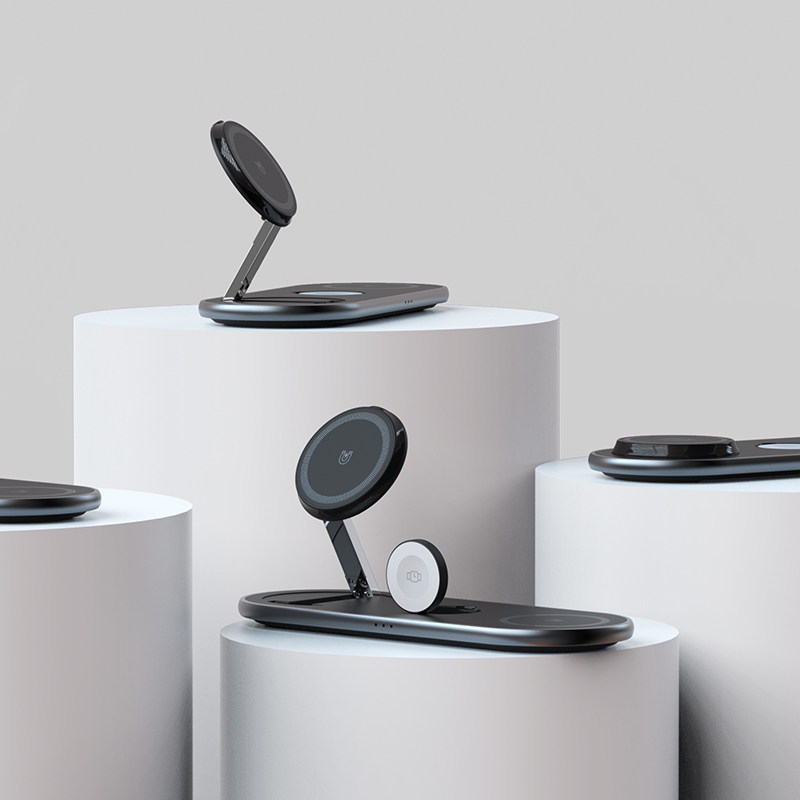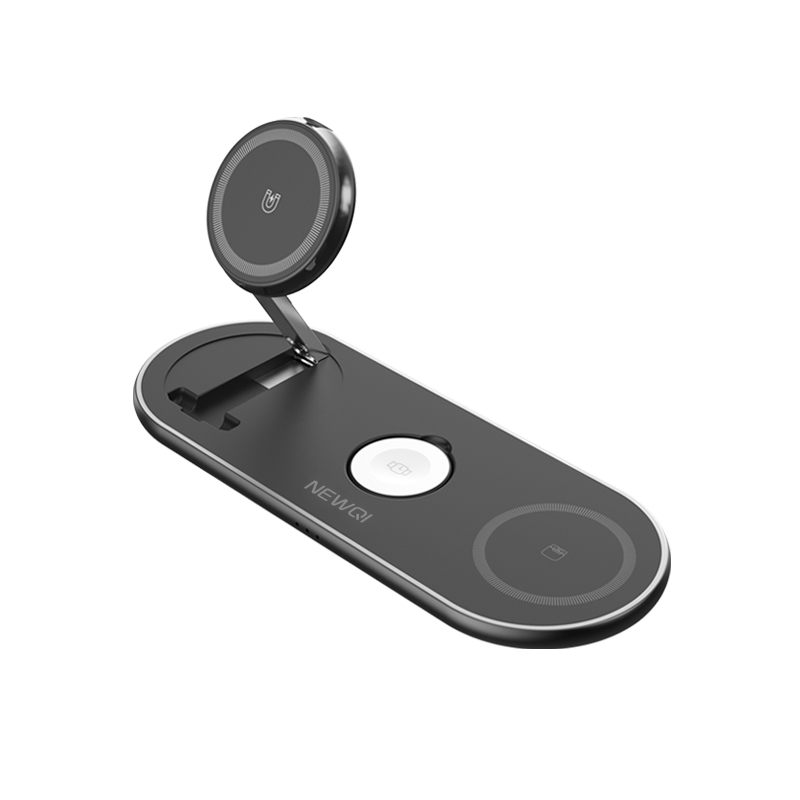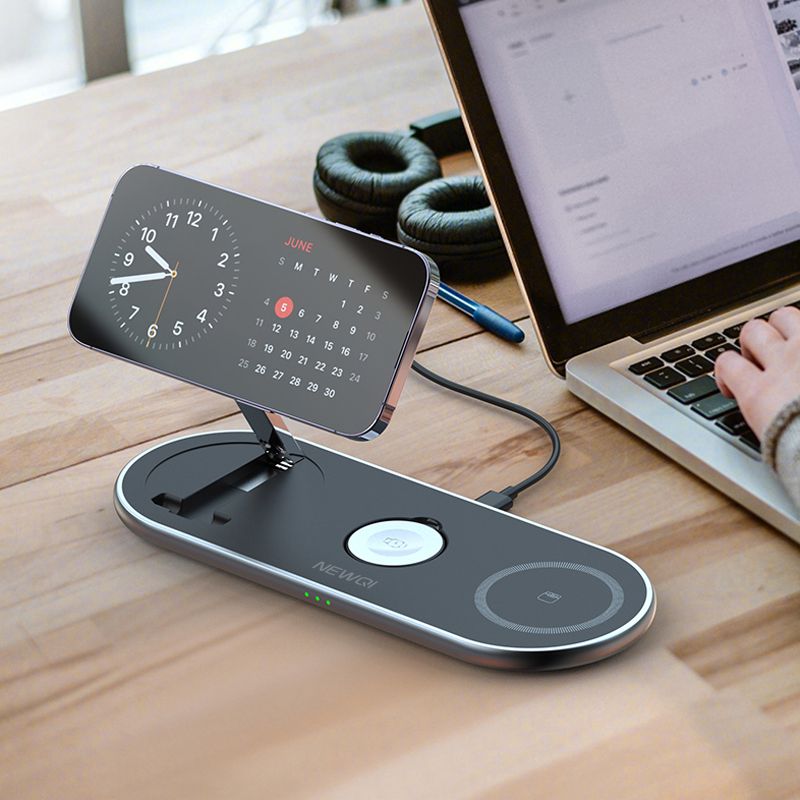Recently, some friends have been discussing that the Apple iPhone 15 finally supports the new generation Qi2 wireless charging, and the power has finally been increased to 15W.
However, for a large number of friends, they only know about Qi wireless charging and are not familiar with the newly upgraded Qi2 wireless charging, and even do not know what upgrades are available.
So today NEWQI will talk to you about what the new generation of Qi2 wireless charging is? Where have we upgraded again?

About Qi2 wireless charging
When it comes to Qi2 wireless charging, WPC, also known as Wireless Power Consortium, is the first standardized organization in the world to promote wireless charging technology.
Like the vast majority of standardized organizations, WPC has also developed many specifications for wireless fast charging technology to achieve full compatibility of all wireless chargers and wireless power sources worldwide. Among them, the wireless charging protocol Qi is the one we are most exposed to in our daily lives.
Qi wireless charging is a universal standard, and the commonly used Qi wireless charging protocols include Qi1.2.4 and Qi1.3.3. As long as your product has the Qi logo, it can be charged with a Qi wireless charger.
Qi2 wireless charging adds MPP protocol (physical layer) and magnetic alignment method on the basis of Qi1.3, and operates in a new frequency range of 360kHz to enhance foreign object detection function. In this way, Qi2 can achieve a transmission capacity of 15W through MPP and EPP modes under high-precision alignment of magnetic attraction, and even higher transmission power in the future.

What has Qi2 been upgraded to for wireless charging?
Many friends may not be aware that early wireless charger products were mixed, and many people had a bad impression of Qi wireless charging.
Originally, some large manufacturers would provide Qi certification for their products to support Qi wireless charging, and the experience was still good. But some manufacturers have found that even without Qi certification, they can still support Qi wireless charging. Who makes it a universal protocol? However, in order to save costs, they make the charging speed very slow, as long as it can be used.
This is also one of the reasons why some early friends used wireless charging to charge less and less.
The biggest upgrade point of the emergence of Qi2 wireless charging is its addition of a brand new MPP protocol. What most people would never guess is that this new MPP protocol is based on Apple's MagSafe technology.
As Apple is also a member of WPC, after contributing MagSafe's technical specifications, WPC further optimized the existing BPP and EPP protocols to form this new MPP protocol, which has better compatibility and higher charging efficiency.
Although the coil module of MPP can adopt a universal design, similar to Apple's MagSafe, to pass Qi2 certification, at least one Qi2 EPP transmission area or MPP transmission area with a power of 5W or more must be equipped. Chargers that only support BPP cannot pass Qi2 certification to ensure better matching, further improve energy efficiency, and achieve faster charging speed.

Another major upgrade point of Qi2 wireless charging is its support for magnetic positioning, effectively improving charging energy efficiency and power.
I believe many Android users often need to explore the sensing position of wireless charging due to the different wireless charging chips of their devices. If the placement is incorrect or deviated, it can easily affect charging efficiency or prevent charging.
The addition of magnetic positioning allows us to achieve fast positioning in a seamless manner during wireless charging, making wireless fast charging more versatile.
With the promotion of Qi2 wireless charging, devices that support Qi2 wireless charging in the future, such as Android phones, wireless headphones, mice, etc., can be reliably charged with magnetic suction like MagSafe, and even achieve higher power wireless fast charging on the 15W fast charging standard of Qi2 wireless charging. Currently, major domestic manufacturers such as Beisi, NEWQI, and Aodehong have launched Qi2 certified charging products.